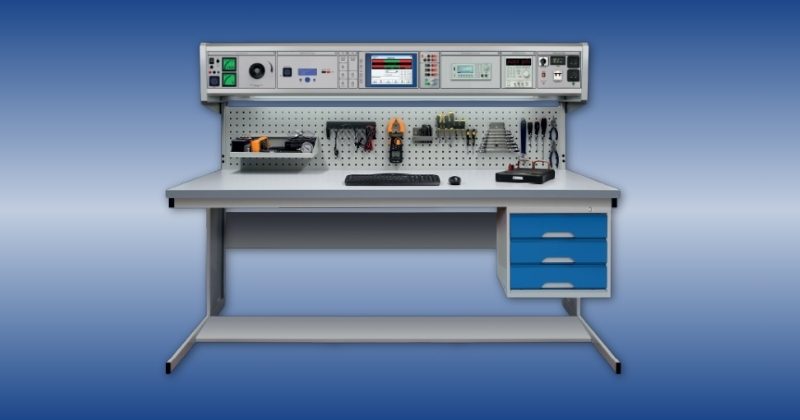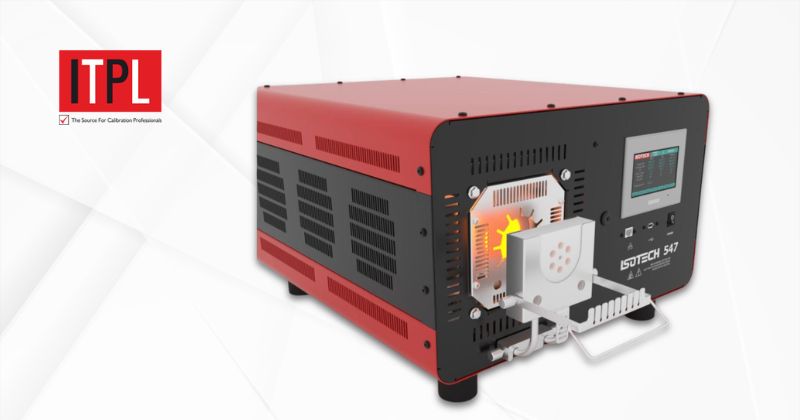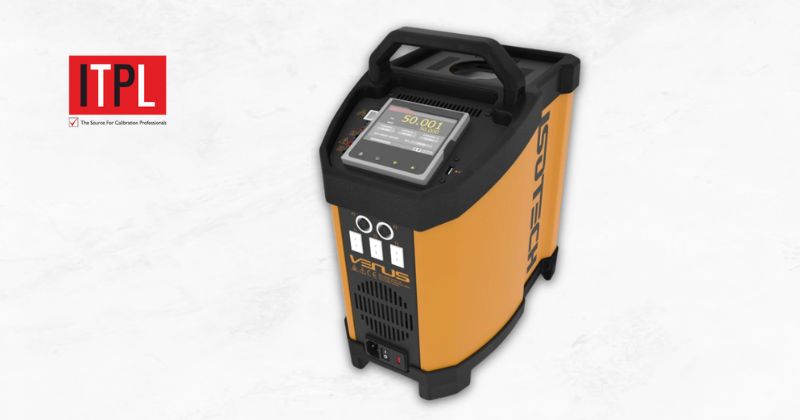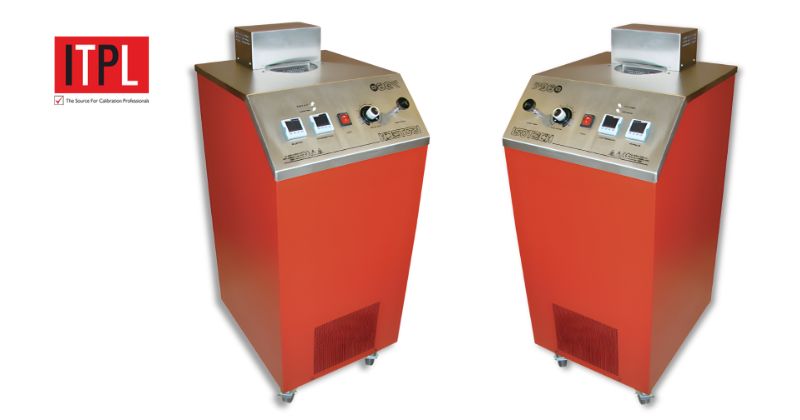The world of heavy industries and high-technology laboratories is very complex and none of this includes precision as an option. Accurately calibrated instruments are the key to the reliability of every measurement, including a slight temperature variation, as well as a critical pressure reading. Here calibration bench systems are the most valuable tools. Calibration bench A complete workstation used to calibrate electrical, temperature, pressure, and any other industrial sensor instrument to the highest accuracy levels of standards, literally the backbone of correct industrial instrumentation.
Calibration Bench System: What Is a Calibration Bench System?
Modular calibration bench systems A calibration bench system is an integrated workstation designed to offer a stable, controlled instrumentation facility to precisely test-verify, and calibrate a broad range of industrial and laboratory equipment against recognized standards. This plays a critical role in ensuring that your instruments provide you the accurate and reliable results, thus reducing down to minimum errors, quality of products, and integrity of operation.
Such advanced systems usually have a number of distinct parts which form a working whole:
- Modular Calibrators: This will allow and be able to generate and measure many parameters (e.g. electrical, pressure, temperature).
- Precision Multimeters: To get very precise values of electrical measurements.
- Pressure Controllers/Generators: Where there is a requirement of a specific pressure generation: e.g. the pneumatic or hydraulic generation of a specific pressure.
- Temperature Sources: e.g. dry blocks /liquid baths in thermo-calibration.
- Work Surfaces and Storage: Has ergonomically friendly working surfaces and storage to assist in the workflow and component organization.
Calibration Bench types
Because of their flexibility, calibration bench systems are also offered in many specialized types, which suit a special line of calibration needs:
- Electrical Calibration Bench:
- Description: It deals with the calibration of electrical quantities like voltage, current, resistance, power, and frequency.
- Use Case: This is needed to confirm the multimeters, power supplies, oscilloscope, and electrical sensors.
- Industry Tex: It can be used in electronics manufacturing, power generation applications, and electrical maintenance labs, in general.
- Pressure Calibration Bench:
- Description: Planned as a very precise pressure gauge, transmitter, transducer, and switch calibrator.
- Use Case: Incorporates higher accuracy pressure regulators and gauges.
- Industry Application: Oil and gas, chemical processing, and any industry that uses accurate pressure measurements.
- Temperature Calibration Bench:
- Description: A company that specializes in the calibration of temperature probes including thermocouples, RTDs, and industrial thermometers.
- Use Case: Adds stable sources of temperature such as dry-block or liquid bath calibrators.
- Industry Use: In pharmaceutical uses, food processing, and other metallurgical applications with direct involvement of thermal accuracy.
- Portable Calibration Bench:
- Description: Small, durable, and frequently battery-powered instruments to be used in the field during calibration.
- Use Case: It is preferable to on-site validation of instruments that minimize downtime and logistics.
- In the Field: Field service reps in oil and gas, utility companies, and isolated industrial facilities.
Important Features to Take into account
The contemporary calibration bench set comprises excellent set features, providing security of performance and the end-user:
- Electronic Design: And Personal Layout: In its place is the design to be efficient and comfortable utilized with highly scalable electronic calibration bench design that may conform to desired pattern of working space and workflow.
- Modular and Expandable Architecture: Users may add or subtract particular calibration modules (i.e. pressure, electrical, temperature) as/how their needs change, thus creating a highly flexible and modular calibration bench system.
- Compatibility with Calibration Software: Ability to integrate easily with the more sophisticated software that can be used to automate the calibration process, test points, and test reports. This results in an automated calibration bench.
- Connectivity (USB, RS-232, Ethernet): The connectivity is essential when transferring data, remote control, and interfacing with the laboratory or enterprise systems.
- Data Logging and Automation: the ability to automatically log test data, generate detailed reports, and also considerably diminish manual error. This makes it a real documenting calibration bench.
Applications Across Industries
The importance of calibration bench systems in a wide range of industries encompasses safety, quality, and operations:
- Power & Energy: Calibrating the essential sensors, meters, and protective relays in power plants and distribution networks, providing safe and effective energy generation.
- Oil & Gas: Applications and functionality- Oil & Gas is an industrial calibration workstation that enables accurate measurement of pressure, flow, and temperature devices used in exploration, refining, and natural gas pipeline monitoring.
- Aerospace: Precision calibration of highly sensitive flight instruments, environmental controls, and engine sensors where absolute error is a life and performance issue.
- Pharma and Biotech: critical in the validation of equipment and processes, must have stringent temperature, pressure, and flow control to ensure their products are of the right quality and meet strict regulations.
- Manufacturing QA/QC: This team calibrates sensors, controllers and actuators on the production lines with the central site process instrument calibration bench to make sure they can produce high quality of product and to keep the production line up.
Compliance and standards
The results of a calibration bench system are basic to fulfilling strict trade area and international metrology requirements:
- Traceability (ISO/IEC 17025): Results of the calibration may be traceable to national and international standards, so it is possible to be confident in the quality of measurements.
- NABL Requirements: In the case of the organization of India, accreditation and recognition are of paramount importance to follow NABL (National Accreditation Board for Testing and Calibration Laboratories) standards. This is what a lot of calibration bench systems are aimed to achieve.
- Industry Certification and Metrology: Traceable and documented results of these systems allow organizations to conform to their industry regulations (e.g. API in Oil & Gas, FDA in Pharma). This is vital through the use of traceable calibration hardware.
What are the reasons to use ITPL India Calibration benches?
We, ITPL India boast of being ahead of the game, offering precision and reliable calibration bench systems to suit the rigorous needs of the new-fangled industries. We are not only interested in sales, we provide:
- Quality: Quality is non-negotiable, and we pride ourselves on our calibration benches that are of high quality to provide long-lasting accuracy, stability, and durability.
- Customization Options: We also create custom designs on the calibration bench layouts. This makes our work fully customizable to ensure that the system completely fits your workplace and also according to your preferred workflow.
- Complete Product Offering: There is a product range that has specially designed electrical calibration benches, rugged pressure calibration benches, and unlimited multi-instrument solutions, a system entirely suited to each of the requirements.
- Expert Support and Service: Our team offers the best in after-sales support, technical help, and complete calibration services to ensure that your investment will continue to produce the same results.
- Industry Reputation: Having more than a decade of experience, and a good following of clients, ITPL India is a reliable brand in terms of advanced instrumentation and calibration services.
Explore our range of Multifunction Calibrators and other advanced Electrical Testing and Calibration solutions to discover how ITPL India can elevate your precision calibration standards.
Conclusion: Foundation of Precision Measurement
The calibration bench systems are clearly the foundation of proper industrial instrumentation, helping organizations gain unprecedented accuracy, working effectiveness, and compliance with the regulations. Their flexibility, high functionality and capability to combine various calibration operations make them a mandatory asset in any contemporary industrial or laboratory facility.
Never compromise on accuracy which forms the basis of your operations. Discover how ITPL India develops its own calibration benches today or get in touch with our engineers to create yours and make sure you have the future of accurate and trustworthy measurements.
FAQs About Calibration Bench Systems:
Q1: What is the distinction between electrical and pressure calibration benches?
Ans. Electrical benches provide a place in which technical employees can measure and calibrate voltage, current and resistance. To test their pressure instruments, technicians construct pressure benches by using pressure sources and controllers.
Q2: Is it possible to customize a calibration bench?
Ans. Indeed, systems such as the ones manufactured by ITPL India have modular and customizable configurations to conform to particular lab requirements.
Q3: What are the advantages of automation in calibration benches?
Ans. Automation is efficient, less error-prone, and eases rule-based reporting and data logging.
Q4: How can these benches assist in the compliance with ISO/IEC 17025?
Ans. They provide traceability standards and stable environments and integration of software to report and document properly.




